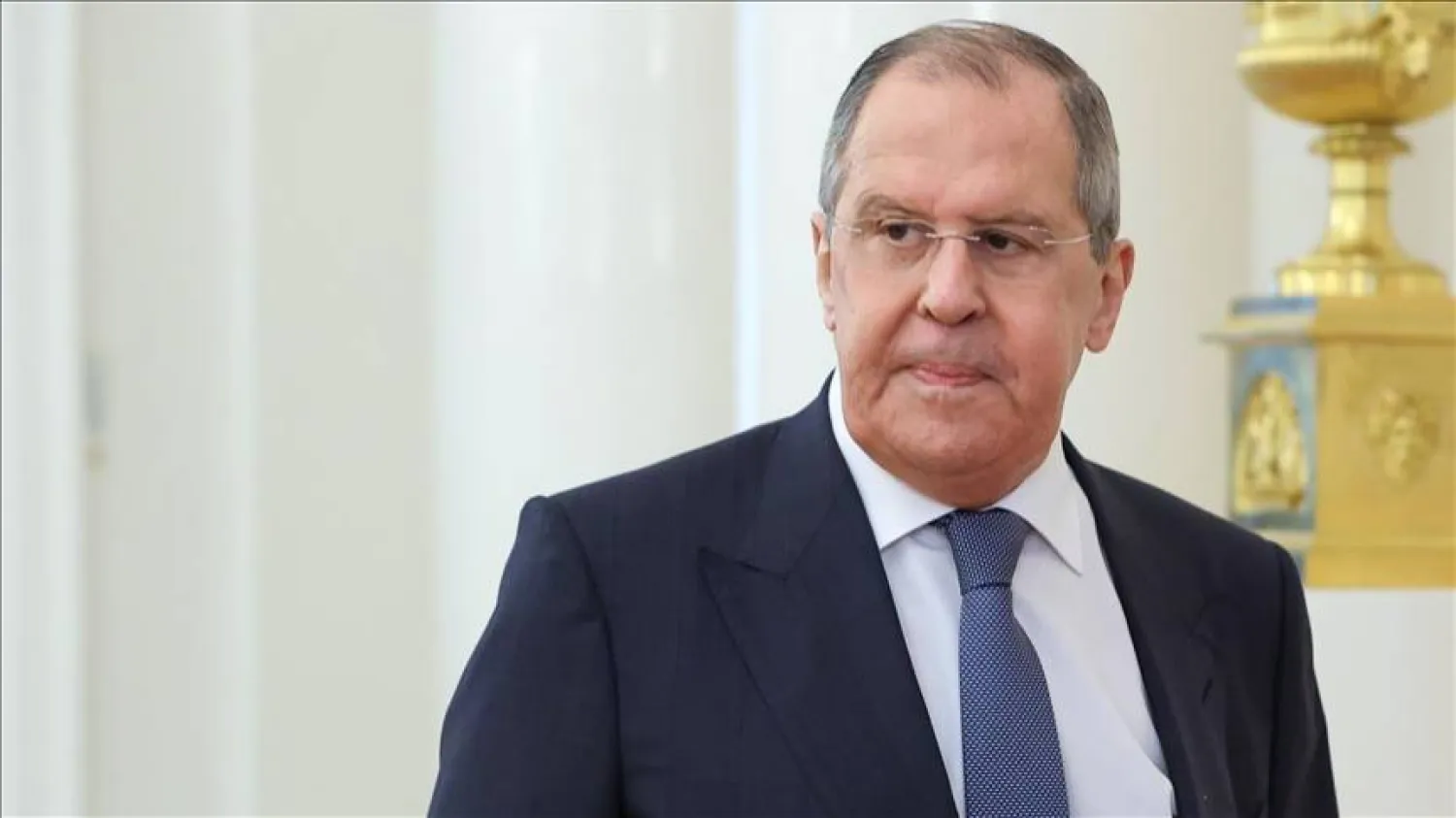Russia’s top diplomat accused the United States, South Korea and Japan on Wednesday of preparing for war with North Korea.
Foreign Minister Sergey Lavrov told a UN news conference that this new military bloc brought together by the United States is building up military activity and conducting large-scale exercises. The United States, South Korea and Japan have described their combined military drills as defensive in nature and necessary to cope with growing North Korean nuclear threats, The Associated Press said.
All of a sudden South Korea’s rhetoric “became even more hostile towards Pyongyang,” Lavrov said. “In Japan as well, we hear aggressive rhetoric” and it is seriously talking about setting up NATO infrastructure with US assistance.
Lavrov said the objective of the military bloc is clearly stated: “They’re preparing for war with the DPRK,” the initials of North Korea’s official name, the Democratic People’s Republic of Korea.
The Russian minister said the United States and its Asian allies have also been talking about developing their cooperation. “It’s quite wishy-washy the way they phrased it, but they said something like nuclear-related cooperation,” he said.
Last week, the three countries conducted combined naval exercises involving an American aircraft carrier in their latest show of strength against nuclear-armed North Korea.
North Korean leader Kim Jong Un has been on a provocative run of weapons testing and threats that raised regional tensions to their highest point in years. Senior diplomats from the three allies were to meet in Seoul to discuss the worsening standoff with Pyongyang.
On the other hand, Lavrov said Russia’s relationship with North Korea is “proceeding nicely, it's developing quite actively.”
“We see that the DPRK is trying to be independent, not to dance anybody’s tune,” he said.
Kim is one of the few world leaders openly supporting Russian President Vladimir Putin’s war on Ukraine. Kim has been actively boosting the visibility of his ties with Russia in an attempt to break out of diplomatic isolation and strengthen his footing, as he navigates a deepening nuclear standoff with Washington, Seoul and Tokyo.
When asked about Lavrov’s comments, South Korean Foreign Ministry spokesperson Lim Soosuk said they reflected North Korea's "constantly false and misleading claims as it tries to shift the blame to the outside world while developing nuclear weapons and missiles under its own schedule.”
He accused North Korea of further raising tensions with its weapons demonstrations this month, including missile tests and artillery test-firings near a disputed sea boundary with the South.
“Our government has consistently expressed a willingness to engage in dialogue with North Korea without any preconditions,” Lim said during a briefing.
The alignment between Moscow and Pyongyang has raised international concern about alleged arms cooperation. North Korea has been accused of providing Russia with arms supplies to help prolong its warfighting in Ukraine, possibly in exchange for economic assistance and military technology.
Both countries have denied accusations by Washington and Seoul that North Korea has been shipping artillery shells, missiles and other military equipment to Russia in recent months.
Putin confirmed his willingness to visit the North Korean capital, Pyongyang, at a convenient time during his meeting with Kim in Russia’s Far East in September. Lavrov said the timing will be decided by the Kremlin.
Lavrov compared Kim’s recent announcement that North Korea would not pursue a peaceful unification with the South to Israeli Prime Minister Benjamin Netanyahu’s statement saying there will be no Palestinian state after the ongoing Israel-Hamas war.
“It’s terrible when, instead of unity, we have trends which divide us,” the Russian minister said. “And yet, this is a systematic process across many regions, and the main contributor to that trend are those who believe to be the masters of the universe.”
Without naming the United States and former Western colonial powers, he said countries that told others how to live for half a millennium and believe they are “masters of the universe” ignore that the overwhelming majority of ex-colonies are now independent and want to buttress their cultural and religious identity.
These ex colonial states are “leaving the West behind,” pointing to the BRICS economic bloc of developing economies that includes Brazil, Russia, India, China and South Africa. countries. The BRICS members have invited Iran, Saudi Arabia, the United Arab Emirates, Egypt and Ethiopia to join.
Lavrov said “the ex-colonial powers have to face up to the reality in today’s world.”
“You shouldn’t just think that you’re so strong just because you have the dollar,” he said.
Russia's Top Diplomat Accuses US, South Korea and Japan of Preparing for War with North Korea

Sergey Lavrov (AA)

Russia's Top Diplomat Accuses US, South Korea and Japan of Preparing for War with North Korea

Sergey Lavrov (AA)
لم تشترك بعد
انشئ حساباً خاصاً بك لتحصل على أخبار مخصصة لك ولتتمتع بخاصية حفظ المقالات وتتلقى نشراتنا البريدية المتنوعة







